Diplomats: Her Excellency Dato' Nazirah Hussain
By Maxmilian Wechsler
| HER Excellency Dato’ Nazirah Hussain’s first major encounter with Bangkok’s vibrant diplomatic corps was at the Shangri-La Hotel in September 2011. Many of the guests at the Malaysian National Day reception were asking about the woman in the beautiful hijab who was hosting the festivities. At the time she was barely three months into her assignment and a virtual unknown. More than five years on she’s still here and easily one of the most recognisable and most active diplomats in Thailand. A short interview with the ambassador appeared in the May 2012 issue of The BigChilli, and she recently made time in her busy schedule to provide an update in her office at the impressive Malaysian embassy compound off South Sathorn Road. The embassy consists of several low-rise buildings surrounded by tall buildings that weren’t there in the past. A number of other embassies in Bangkok are now in the same situation and in some of them, it’s a source of discontent. Ambassador Hussain declined to comment on this point. “I enjoy living at the embassy compound because it’s not far from my office,” she said with a laugh. “The embassy was opened in 1956, actually just before we gained independence from Britain in 1957. We have about 30 Malaysians working here plus 20 Thai staff. The visa section is separate from the embassy compound but close by. We also have a consulate in Songkhla.” Ms Hussain made it clear that she feels “very lucky and privileged” to be posted in Thailand. “It is a wonderful place, and the best part is the Thai people. They are hospitable and welcoming. Thailand is truly the ‘Land of Smiles’.” |
Background
“I was brought up in Kota Bharu, in Kelantan state, which borders Thailand,” said Ambassador Hussain. “My father was an educationist and my mother a housewife. We later moved to the capital, Kuala Lumpur, where my father was employed at the Ministry of Education. I went to university in KL and joined the Ministry of Foreign Affairs (MFA) in 1981. I knew early on that I wanted to make a contribution to society and serve the people of Malaysia.”
Ms Hussain has held key positions in various MFA departments including the Americas Division and Policy Planning, where she served as Principal Assistant Secretary, then Undersecretary and finally as Director General before she came to Thailand. She was also Director General of the ministry’s ASEAN Department.
Positions abroad include Second Secretary in the High Commission of Malaysia in Canberra, First Secretary and Counselor for the Malaysian embassy in China and Deputy High Commissioner of Malaysia in Singapore. She was High Commissioner to Sri Lanka and Maldives.
“When I began my term in Thailand in June 2011 it was my fifth overseas posting and second as ambassador. I couldn’t have been happier when I got the news that I was to be ambassador to Thailand. After six years I am still delighted to be here, and I am especially happy with the positive developments between our two countries in that time. This year we celebrate the 60th anniversary of bilateral relations. We gained independence in 1957, and Thailand was one of the first countries to establish diplomatic relations with Malaysia.
“Our relations have always been good, but I can honestly say that they are now better than ever. This includes in the fields of trade, security, defence, sports, education, people-to-people interactions and culture. My relations with officials from Thai ministries, including the Ministry of Foreign Affairs, are excellent. The relations between our countries continue to strengthen and expand,” said Ambassador Hussein.
Someone who knows the ambassador well is Narong Vongsumitr, a consultant to the Centre for Muslim World Policies at the Faculty of Economics, Chulalongkorn University, and foreign relations adviser to Aziz Phitakkumpon, Sheikhul Islam (Chularajmontri) of Thailand.
“Her Excellency is extremely popular with the Muslim community here,” said Mr Narong. “We admire her very much because she is working hard to strengthen relations between Thailand and Malaysia. She is humble, simple and friendly to everyone. She is also very smart and can quickly recognise a person’s character. She has made many friends while in Thailand and everyone has the highest admiration for her.”
“I was brought up in Kota Bharu, in Kelantan state, which borders Thailand,” said Ambassador Hussain. “My father was an educationist and my mother a housewife. We later moved to the capital, Kuala Lumpur, where my father was employed at the Ministry of Education. I went to university in KL and joined the Ministry of Foreign Affairs (MFA) in 1981. I knew early on that I wanted to make a contribution to society and serve the people of Malaysia.”
Ms Hussain has held key positions in various MFA departments including the Americas Division and Policy Planning, where she served as Principal Assistant Secretary, then Undersecretary and finally as Director General before she came to Thailand. She was also Director General of the ministry’s ASEAN Department.
Positions abroad include Second Secretary in the High Commission of Malaysia in Canberra, First Secretary and Counselor for the Malaysian embassy in China and Deputy High Commissioner of Malaysia in Singapore. She was High Commissioner to Sri Lanka and Maldives.
“When I began my term in Thailand in June 2011 it was my fifth overseas posting and second as ambassador. I couldn’t have been happier when I got the news that I was to be ambassador to Thailand. After six years I am still delighted to be here, and I am especially happy with the positive developments between our two countries in that time. This year we celebrate the 60th anniversary of bilateral relations. We gained independence in 1957, and Thailand was one of the first countries to establish diplomatic relations with Malaysia.
“Our relations have always been good, but I can honestly say that they are now better than ever. This includes in the fields of trade, security, defence, sports, education, people-to-people interactions and culture. My relations with officials from Thai ministries, including the Ministry of Foreign Affairs, are excellent. The relations between our countries continue to strengthen and expand,” said Ambassador Hussein.
Someone who knows the ambassador well is Narong Vongsumitr, a consultant to the Centre for Muslim World Policies at the Faculty of Economics, Chulalongkorn University, and foreign relations adviser to Aziz Phitakkumpon, Sheikhul Islam (Chularajmontri) of Thailand.
“Her Excellency is extremely popular with the Muslim community here,” said Mr Narong. “We admire her very much because she is working hard to strengthen relations between Thailand and Malaysia. She is humble, simple and friendly to everyone. She is also very smart and can quickly recognise a person’s character. She has made many friends while in Thailand and everyone has the highest admiration for her.”
| Southern unrest The ambassador didn’t shy away from the subject of violence and unrest in Thailand’s three southernmost provinces of Narathiwat, Pattani and Yala, which border Malaysia. She said education and economic development are the keys to ending the conflict. “Malaysia is also affected by the unrest in the South and we are trying to help the Thai authorities as much as we can,” said the ambassador, adding that there is good cooperation between Malaysian and Thai authorities in facilitating talks with the other side, and there has been progressing on that front. “The media always highlights when something bad happens, but when nothing happens for 24 hours and then another 24 hours they don’t report it. People in other places get the impression that it is one violent incident after another, but the people who live there see things differently. Day-to-day life goes on as normal. Children go to school. If you go there and travel you will feel safe like in other Thai provinces.” Ms Hussain has visited the South a number of times since coming to Thailand and last year was accompanied Malaysia’s Consul-General on official trips. “I usually visit schools in the South to discuss education issues, especially how to bring about more awareness of the importance of education. “Many residents in the far South have dual nationality and move between the two countries. It is the same situation on the Thai-Cambodian and Thai-Lao borders. When I talk to ordinary people in the southernmost provinces I find that the big majority are looking forward to more development in the three provinces within Thailand. The younger ones speak more Thai than Malay. Most people make a living from agriculture, mainly rubber and palm oil. When the rubber price goes down they are affected. “Many people also engage in cross-border trade. My embassy is trying to bring people on both sides of the border together to encourage the development of small businesses. We have made some progress. Last September the Thai Deputy Commerce Minister went to Kelantan to attend an expo and seminar on halal SMEs in Kelantan, and we are optimistic that this will yield productive initiatives. We are working together to implement programs to train people in halal food preparation and processing. |
| “Thailand and Malaysia are both members of the ASEAN community. We have to have peace not just between countries but in our countries. Fortunately, Malaysia has remained peaceful so far, but we cannot be complacent and we cannot rest. We have to be always on guard because there will be always people who want to create problems. We must know how to overcome the problems, and that is through education and economic development.” The ambassador said there is very good cooperation between law enforcement agencies in Malaysia and Thailand in keeping track of insurgents, and also in other areas. “Smuggling of motor vehicles from Malaysia into Thailand still continues. The cars are mostly taken to third countries; Thailand is a transit point. Through working with the Thai police many stolen cars have been returned to Malaysian citizens. “International crime syndicates traffic narcotics both ways across the border. Sadly, there are many drug addicts in both countries, but we work very well with the Thai authorities to suppress the illicit drug trade. In recent times we have been able to shut down five syndicates.” A day like no other Ms Hussain said that out of all the many significant experiences she’s had since taking her post in June 2011, none compared to the passing of His Majesty King Bhumibol Adulyadej. “On the day the death of His Majesty was announced, [October 13, 2016], I was attending an ASEAN- EU meeting in Bangkok. Our Foreign Minister was here as well. The news made such a profound impression on the gathering. “This is a very sad time for the Thai people, and being here to witness the immense love of the Thai people for His Majesty has been overwhelming. All of us in the diplomatic corps share the grief and anguish of the Thai people for the passing of the monarch who contributed so much to making Thailand such a wonderful place.” |
| Same but different “Every day is a little bit different for me,” said the ambassador. “My schedule is certainly busy, but there is a lot of variety. I have a lot of duties and activities every day, and there are always social functions, including on weekends. We are involved in sports events, social welfare and charity events, and things like school openings. I also attend National Day receptions and diplomatic lunches and dinners.” “Some days I have to do something related to defence or deal with the Royal Thai Police when they, for example, return cars that were stolen in Malaysia and smuggled to Thailand. Sometimes I am occupied with trade and investment activities, and some days I go to different universities to talk about bilateral relations, ASEAN and other subjects. “Other days I stay at the embassy, taking care of internal matters and attending meetings here. The common denominator in my schedule is that I’m almost always busy. But I like to be busy; if we are not busy then we cannot contribute.” The ambassador admitted she has little privacy because there are always people around, but she doesn’t mind. She feels that goes with the territory and it’s far outweighed by the privilege of representing Malaysia in Thailand. She pointed out that while the two countries established formal diplomatic ties in the modern era in 1956, the traditional relationship between the neighbouring states goes back over a thousand years. She explained that Malaysia is a federation of 13 states and one federal territory with three sectors. “Every state is in charge of its own affairs, excluding foreign affairs, defence and security. Malaysia is a constitutional elective monarchy. The King of Malaysia commonly referred to as ‘Yang di-Pertuan Agong’, is selected from the nine sultans of Malay states for a term of five years. The other four states that do not have sultans are ruled by governors. |
Injury leads to understanding
Although Ambassador Hussain has been very happy during her time in Thailand, she did suffer the misfortune of a broken leg after slipping in the embassy compound in 2015. Even with the best of medical care, it took almost one year for her to fully recover. Despite her injury, she continued to work and even attended various functions in a wheelchair, with staff always at her side.
“Thai authorities and Thai university officials who invited me to give speeches were very kind and assisted me during the time I was in the wheelchair. I wanted to send a message that disabilities, whether temporary or permanent, need not stop a person from contributing.” The experience brought home to her the significance and value of the Paralympics Games.
“Malaysian Paralympians did very well in the 2016 Summer Paralympics Games in Rio de Janeiro, as did their Thai counterparts. We need to encourage people to fully accept those with disabilities and not be ashamed if they have a friend, sister or child with a disability. Instead, we should all be supportive and help instil the right values and confidence in them and give them the chance to compete.”
Ambassador Hussain then brought up another important sporting event, the upcoming South-east Asian Games (SEA Games) to be held in Malaysia during August. “On April 1 many Thai and Malaysian sports figures participated in a promotional event in KL for the SEA Games called ‘Rising Together Baton Run’. The event was attended by the Thai Minister of Tourism and Sport and our Sports Minister as well.”
Malaysia’s economic miracle
According to official statistics for 2016, the population of Malaysia was 31.7 million people, about half the population of Thailand. Malaysia’s GDP last year was US$246.7 billion, compared to Thailand’s US$382.6 billion. Malaysia’s total exports amounted to US$189.41 billion (manufactured goods 82.1%; agricultural goods: 9.0%; mining goods 8.2%). Malaysia recorded a growth of 4.25%, while the figure for Thailand was 2.8%. Malaysia’s per capita income was about US$10,000 compared to US$5,878 for Thailand.
“The trade between our two countries has been steadily increasing in recent years. Thailand is our second biggest trading partner in ASEAN after Singapore, and the 5th biggest in the world,” Ms Hussain said.
Major exports from Malaysia to Thailand are machinery and parts, chemicals and chemical products, transport equipment, optical and scientific equipment, petroleum products, rubber products, beverages, tobacco, processed foods, electronic products, crude petroleum, iron and steel products and manufactured metal products.
Thailand’s major exports to Malaysia include natural rubber and many of the same product categories which are imported from Malaysia, such as chemicals and chemical products, machinery and parts, electrical and electronics products, processed foods, metal and petroleum products and optical and scientific equipment, as well as plastic, paper and pulp products.
Some of the larger Malaysian companies present in Thailand are Petronas, ZICO Law, Sime Darby, Maybank Kimeng, DRB-HICOM, Proton, Malaysian Airline, Top Glove, BOH and CIMB GROUP, RHB and Ingress.
“One of our goals is to become a high-income country,” said Ambassador Hussain. “A National Transformational 2050 (TN 50) plan was announced by Malaysian Prime Minister Datuk Seri Najib Razak in October last year. It succeeds the Vision 2020 (Wawasan 2020) plan announced by former Prime Minister Mahathir bin Mohamad in 1991. One of the goals was for Malaysia to be a self-sufficient industrialised nation by the year 2020. We are well on the way to making this a reality.”
Although Ambassador Hussain has been very happy during her time in Thailand, she did suffer the misfortune of a broken leg after slipping in the embassy compound in 2015. Even with the best of medical care, it took almost one year for her to fully recover. Despite her injury, she continued to work and even attended various functions in a wheelchair, with staff always at her side.
“Thai authorities and Thai university officials who invited me to give speeches were very kind and assisted me during the time I was in the wheelchair. I wanted to send a message that disabilities, whether temporary or permanent, need not stop a person from contributing.” The experience brought home to her the significance and value of the Paralympics Games.
“Malaysian Paralympians did very well in the 2016 Summer Paralympics Games in Rio de Janeiro, as did their Thai counterparts. We need to encourage people to fully accept those with disabilities and not be ashamed if they have a friend, sister or child with a disability. Instead, we should all be supportive and help instil the right values and confidence in them and give them the chance to compete.”
Ambassador Hussain then brought up another important sporting event, the upcoming South-east Asian Games (SEA Games) to be held in Malaysia during August. “On April 1 many Thai and Malaysian sports figures participated in a promotional event in KL for the SEA Games called ‘Rising Together Baton Run’. The event was attended by the Thai Minister of Tourism and Sport and our Sports Minister as well.”
Malaysia’s economic miracle
According to official statistics for 2016, the population of Malaysia was 31.7 million people, about half the population of Thailand. Malaysia’s GDP last year was US$246.7 billion, compared to Thailand’s US$382.6 billion. Malaysia’s total exports amounted to US$189.41 billion (manufactured goods 82.1%; agricultural goods: 9.0%; mining goods 8.2%). Malaysia recorded a growth of 4.25%, while the figure for Thailand was 2.8%. Malaysia’s per capita income was about US$10,000 compared to US$5,878 for Thailand.
“The trade between our two countries has been steadily increasing in recent years. Thailand is our second biggest trading partner in ASEAN after Singapore, and the 5th biggest in the world,” Ms Hussain said.
Major exports from Malaysia to Thailand are machinery and parts, chemicals and chemical products, transport equipment, optical and scientific equipment, petroleum products, rubber products, beverages, tobacco, processed foods, electronic products, crude petroleum, iron and steel products and manufactured metal products.
Thailand’s major exports to Malaysia include natural rubber and many of the same product categories which are imported from Malaysia, such as chemicals and chemical products, machinery and parts, electrical and electronics products, processed foods, metal and petroleum products and optical and scientific equipment, as well as plastic, paper and pulp products.
Some of the larger Malaysian companies present in Thailand are Petronas, ZICO Law, Sime Darby, Maybank Kimeng, DRB-HICOM, Proton, Malaysian Airline, Top Glove, BOH and CIMB GROUP, RHB and Ingress.
“One of our goals is to become a high-income country,” said Ambassador Hussain. “A National Transformational 2050 (TN 50) plan was announced by Malaysian Prime Minister Datuk Seri Najib Razak in October last year. It succeeds the Vision 2020 (Wawasan 2020) plan announced by former Prime Minister Mahathir bin Mohamad in 1991. One of the goals was for Malaysia to be a self-sufficient industrialised nation by the year 2020. We are well on the way to making this a reality.”
| Tourism “There has been an increase in the number of Malaysians visiting Thailand and vice versa. This is a win-win development for both sides, and the embassy is actively involved in encouraging Thais to visit Malaysia. There are so many places in Malaysia I would recommend, including Langkawi, which is an archipelago made up of 99 islands on the west coast and the country’s best-known holiday destination. “Sipadan is wonderful if you like to dive, while Sarawak is great for ecotourism with its rainforests, mountains and huge caves. From Kuala Lumpur, you can take a side trip to the Cameron and Genting Highlands. There’s so much to choose from. “Chinese tourists make up the biggest group of visitors to Malaysia, but about one million Thai tourists came in 2016, compared to about two million Malaysian tourists in Thailand. Large numbers of Malaysian tourists come during the New Year holiday and also Songkran. Some only go to Hat Yai just across the border but many come to Bangkok as well. They like to shop, mainly at Chatuchak Market, MBK and the Pratunam area.” Personal remarks Ambassador Hussain likes to travel around Thailand, sometimes as part of her official duties and sometimes on personal trips, especially on weekends. ‘‘I have visited, among other places, Chiang Mai and Phitsanulok in the North and Nakhon Si Thammarat, Krabi, Songkhla, Hat Yai and of course the three southernmost provinces.Recently I was in Nong Khai and in Bueng Kan, which is the newest, 76th province in Thailand located in the Northeast. I went there for ‘Red Cross and Rubber Day” held in February. Not long ago I went to Krabi to attend a tourism seminar. |
“I like Thai food, especially spicy dishes like Som Tam. I have a few favourite Thai food restaurants and we cook it sometimes at the embassy.”
Ambassador Hussain said a diplomat must find beauty in any country where he or she is posted. “It’s hard to say which place you have served is the best. Every place is special and different. If a diplomat says a place is no good, it may be the diplomat who is no good. But there’s no doubt that finding beauty is a very easy matter in Thailand. I am enjoying every minute I am here and I am happy to continue to work hard to ensure that our two countries strengthen diplomatic, cultural and economic relations and bring them to new heights.”
Asked about her future plans, the ambassador answered: “When they call me back to Malaysia I have to go. Normally the ambassadorial term for Malaysian diplomats is three years. I have been here twice that. I’m in the bonus round already so I can’t be greedy.”
Ambassador Hussain said a diplomat must find beauty in any country where he or she is posted. “It’s hard to say which place you have served is the best. Every place is special and different. If a diplomat says a place is no good, it may be the diplomat who is no good. But there’s no doubt that finding beauty is a very easy matter in Thailand. I am enjoying every minute I am here and I am happy to continue to work hard to ensure that our two countries strengthen diplomatic, cultural and economic relations and bring them to new heights.”
Asked about her future plans, the ambassador answered: “When they call me back to Malaysia I have to go. Normally the ambassadorial term for Malaysian diplomats is three years. I have been here twice that. I’m in the bonus round already so I can’t be greedy.”

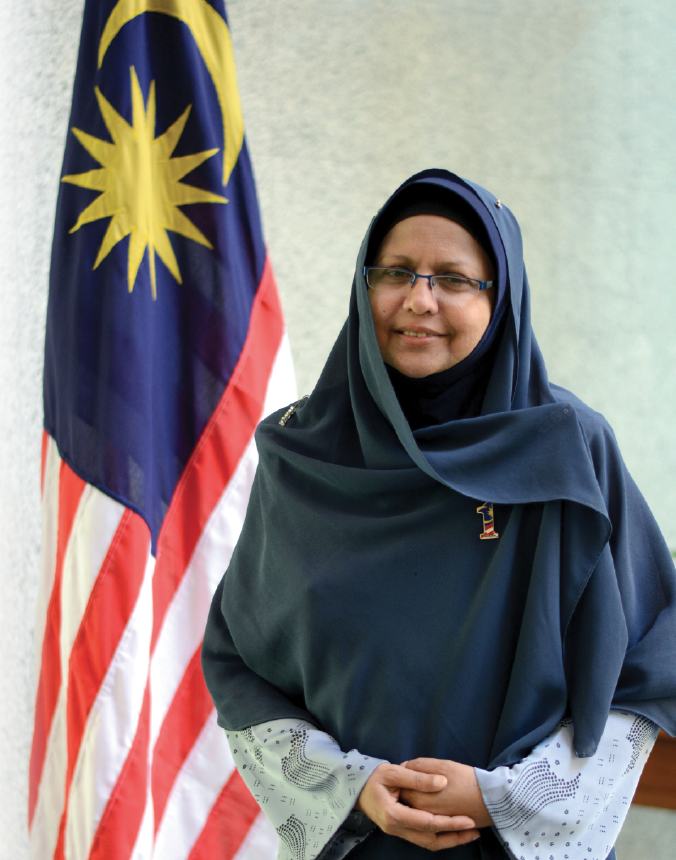
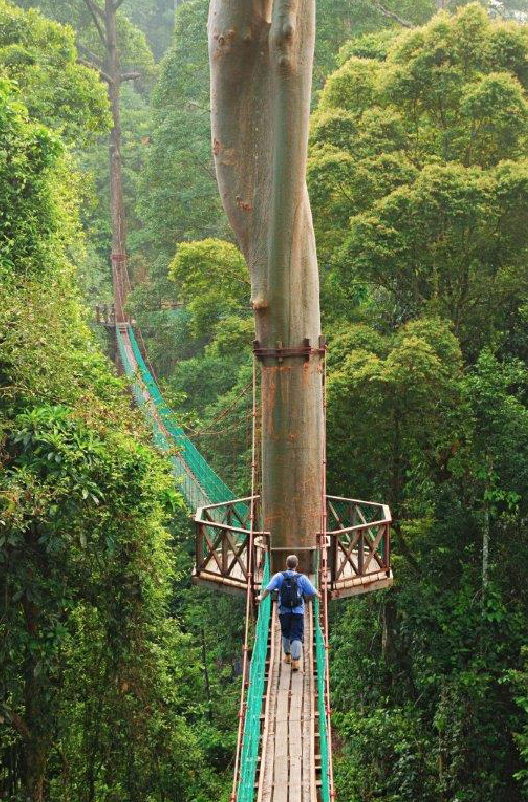
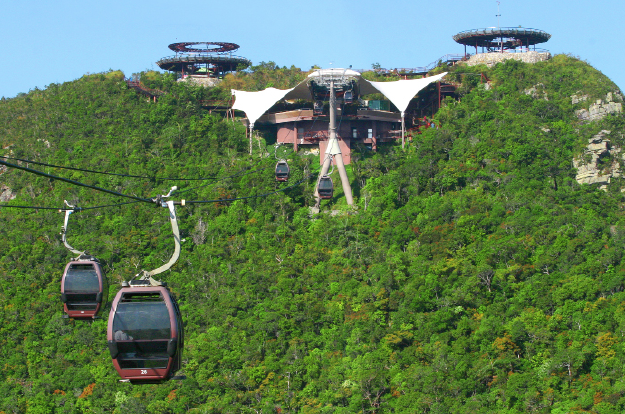
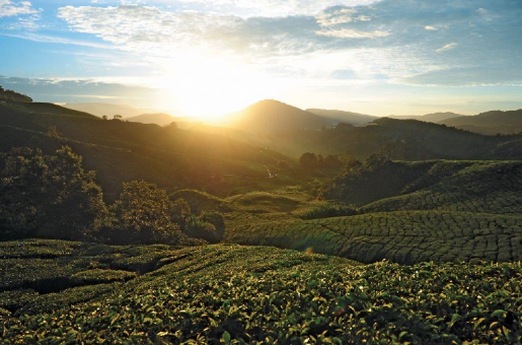
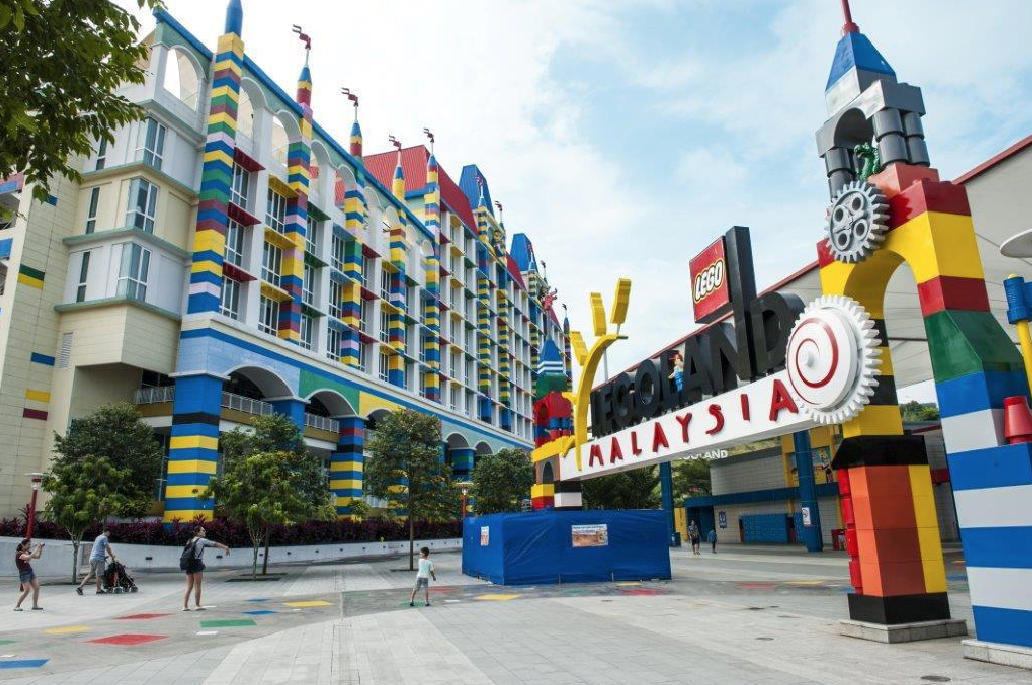
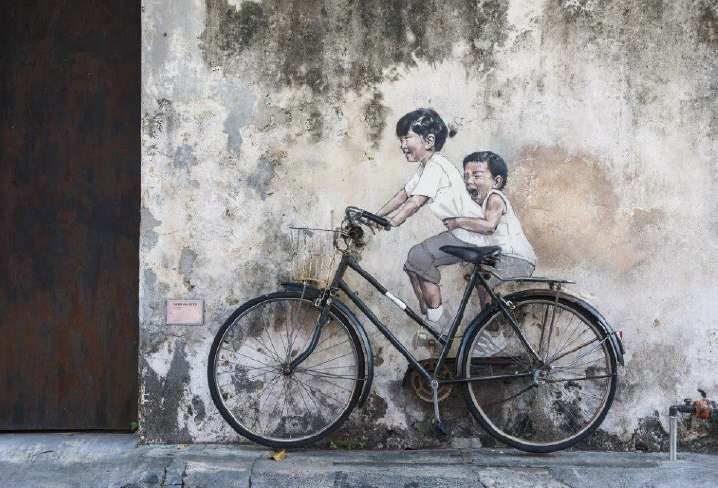
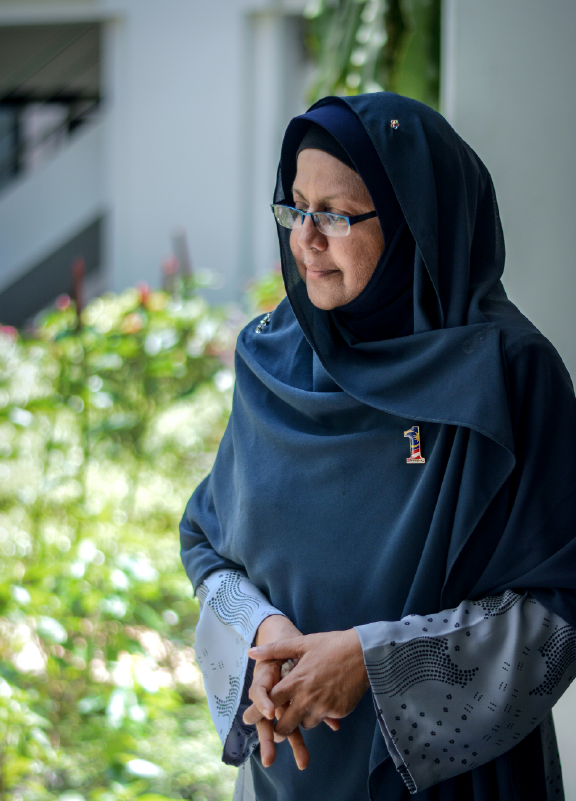
 RSS Feed
RSS Feed
















